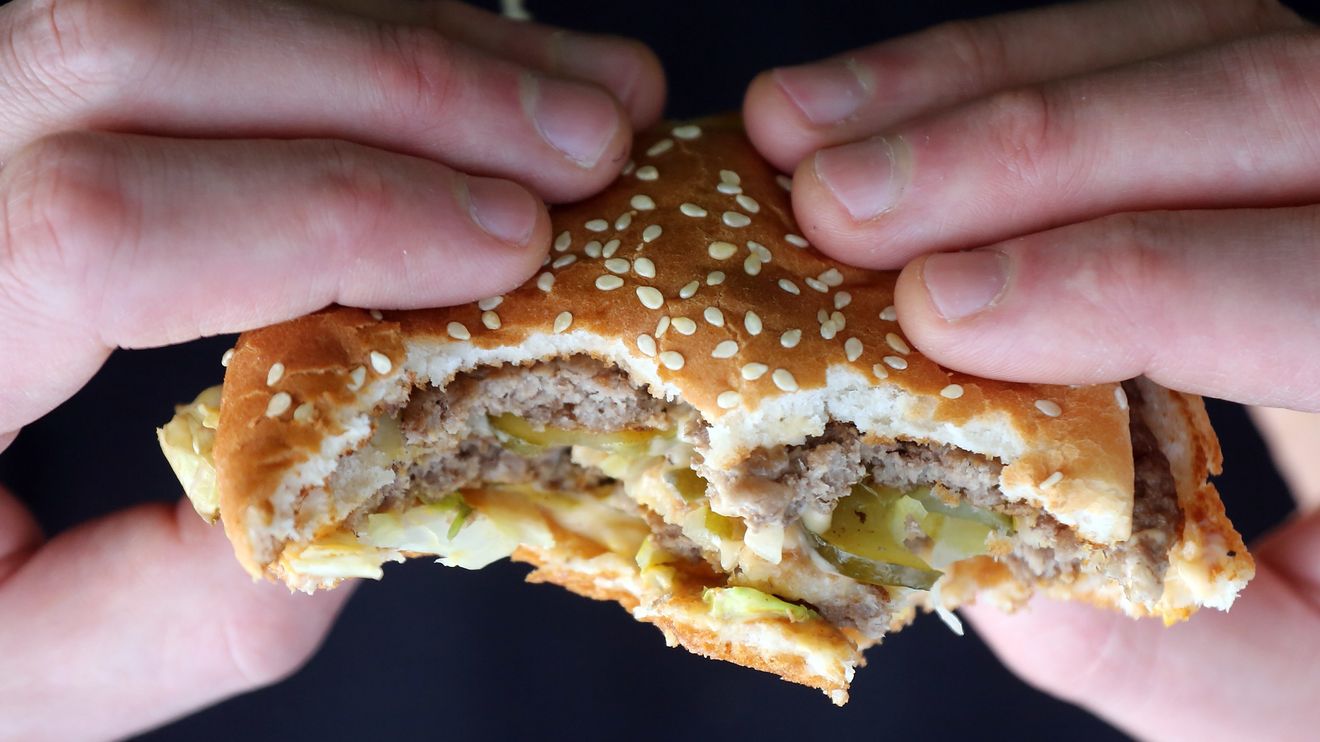: A big tax on a Big Mac? Some say it’s time to consider meat taxes to reduce beef consumption and help the environment

Americans already pay taxes on everything from the real estate they own to some of the consumer goods they purchase.
But could they one day be taxed on the meat they eat?
The idea of a meat tax has been widely discussed across the globe in recent years, particularly as a way to reduce consumption of beef in light of the effects the cattle industry has on the climate crisis. The United Nations has said that emissions from livestock account for 14.5% of total greenhouse gas emissions across the planet. Almost two-thirds of those emissions come from cattle, especially in the form of the methane gas emitted by the animals, according to the United Nations.
In advance of the current U.N. climate change conference, otherwise known as COP26, in Glasgow, which is being attended by President Joe Biden and other global leaders, at least one British politician signaled his support for a meat (and dairy) tax — at least in the U.K.
George Eustice, the U.K.’s Secretary of State for Environment, Food and Rural Affairs told the Telegraph that taxes are being considered in connection to such foods because of the impact on global warming. “We need to do the thinking about it now,” he said.
It’s perhaps a stretch to think that the U.S., which ranks among the top countries in meat consumption, would enact a climate change-related meat tax, whether it’s levied on meat producers or shoppers.
But Atul Jain, a University of Illinois atmospheric-sciences professor who has studied the relationship between food production and greenhouse-gas emissions, says it’s at least worth contemplating.
“This is a very good idea,” said Jain.
At the same time, Jain says there are many ways to tackle the issue, beginning with educating younger people about the connection between food and the climate crisis as a way to reduce their consumption of meat. Jain also says if the U.S. is to encourage people to switch from an animal-based diet to more of a plant-based one, it must make sure nutritional needs and concerns are properly addressed.
Others signal support for a meat tax, ranging from academics to animal-rights activist groups, such as PETA (People for the Ethical Treatment of Animals). They point to numerous benefits beyond just environmental concerns, including how a plant-based diet can be better for our health and reduce our country’s overall medical expenses.
“I do think that we should seriously consider a meat tax in the U.S. The meat industry causes massive and unnecessary harm to animals, workers, public health and the environment, and the cost of meat is artificially low because of subsidies and deregulation,” said Jeff Sebo, a clinical associate professor of environmental studies at New York University. Sebo also directs an animal-studies program at the school.
PETA President Ingrid Newkirk said the organization has been calling for a meat tax since the early 2000s. “You can’t be a meat-eating environmentalist,” she said.
Not surprisingly, the meat industry has signaled its opposition to any kind of new taxation. In the U.K., Minette Batters, president of the National Farmers’ Union, warned of potentially devastating economic consequences. It’s “just going to put our farmers out of business,” Batters told a British website.
The U.S.-based National Cattlemen’s Beef Association declined a MarketWatch request for comment.
For now, the Biden Administration hasn’t signaled the possibility of any meat tax — or even of any efforts to reduce meat consumption in the U.S. The administration is targeting methane emissions — which are more potent than carbon emissions but don’t last as long in the atmosphere — from other industries, including the point at which natural gas is captured, and sometimes leaks.
At a virtual briefing of the North American Agricultural Journalists association earlier this year, Agriculture Secretary Tom Vilsack said: “There’s no desire, no effort, no press release, no policy paper — none of that — that would support the notion that the Biden administration is going to suggest that people eat less meat.”
Read: No, Biden isn’t coming for your burgers as he pursues his anti-climate-change agenda

Comments are closed.